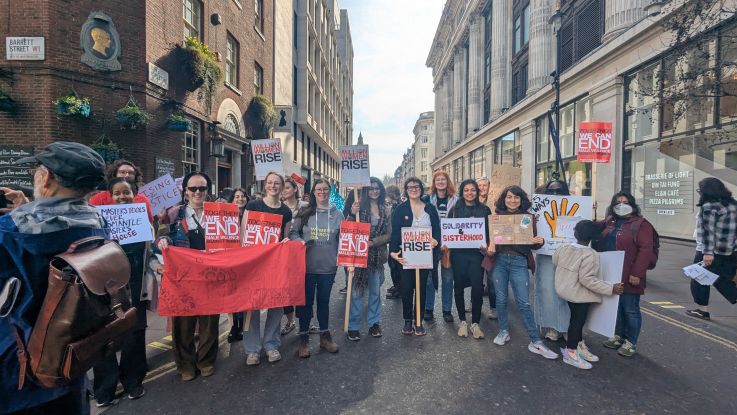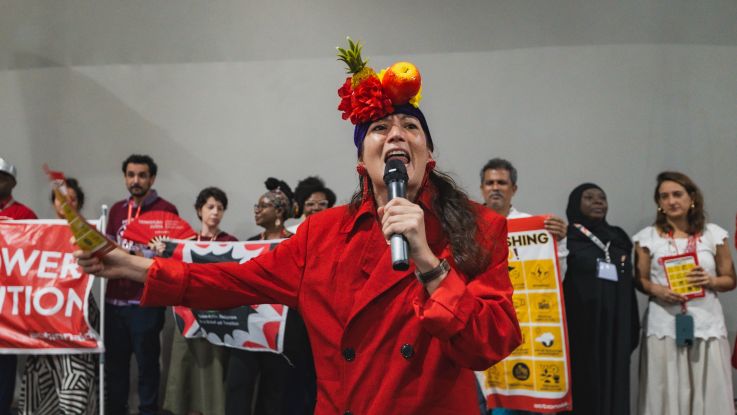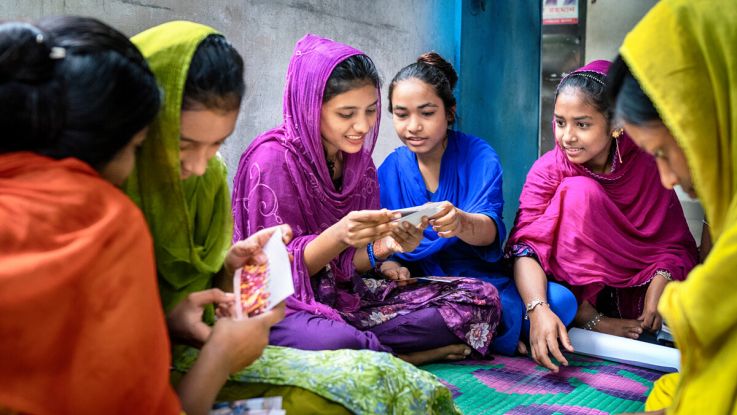Meet the kids scavenging on rubbish dumps to survive
30 January 2015
15 million people in the developing world today survive by salvaging waste. Many of them are children. We lift the lid on the worldwide scandal of young kids forced to scavenge on rubbish dumps to survive.
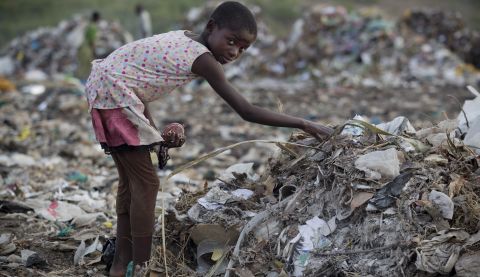
Margaret, 10 years old. Mwakirunge Dumpsite, Mombasa. Photo: Kate Holt/ActionAid
Meet Margaret, from Kenya. Margaret lives with her family on the Mwakirunge dumpsite just outside Mombasa. Every day she wades through rubbish, broken glass and toxic waste, collecting scrap metal and plastic to sell to earn a living. She is 10 years old.
Margaret told us: "It is very dirty and there is a bad smell. I know there are very bad diseases that I can catch here. I am afraid of being cut by broken bottles, nails or syringes.
"There are some men who go round beating people with bottles when they are drunk."
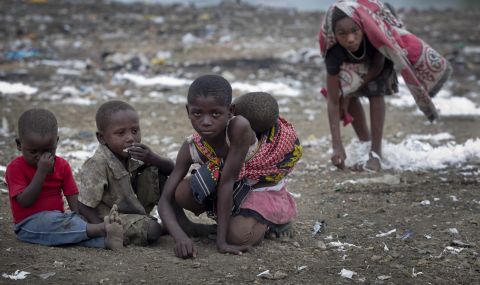
Margaret with her little brother and friends at the end of the day on the Mwakirunge dumpsite in Mombasa .
Margaret is just one of the hundreds of girls who are forced to work here every day. Children are missing out on school so they can contribute to the family's income.
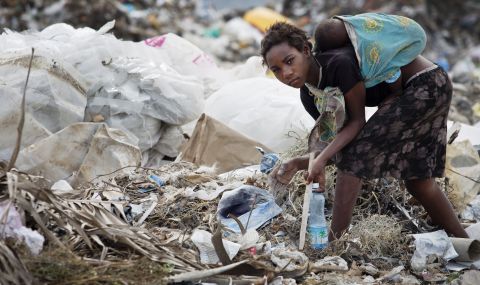
11-year-old Furaha had to drop out of school to support her family by collecting plastic bottle tops she can sell on the Mwakirunge dumpsite in Kenya .
But they don’t earn much. Middlemen buy recyclables recovered by the waste pickers, and sort, clean and process them before selling to scrap dealers who sell it on. It's these middlemen and scrap dealers who often earn large profits.
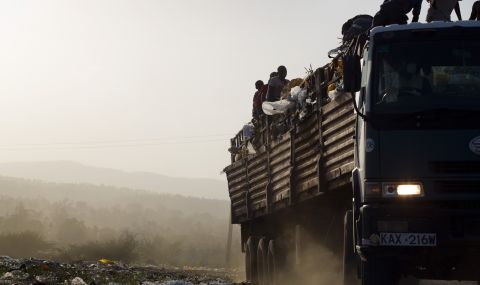
Men riding on top of a truck full of rubbish about to be dumped on the Mwakirunge dumpsite, where hundreds of women and girls live and work .
In Sierra Leone, a country recovering from decades of civil war – and more recently in the epicentre of the worst ever Ebola outbreak in history – the capital, Freetown has a massive rubbish dump right in the middle of the city.
During the rainy season, the residents, who live on the edge of the dump, try to earn a living from scouring through rotting rubbish, plastic bags and raw sewage for discarded things they can sell.
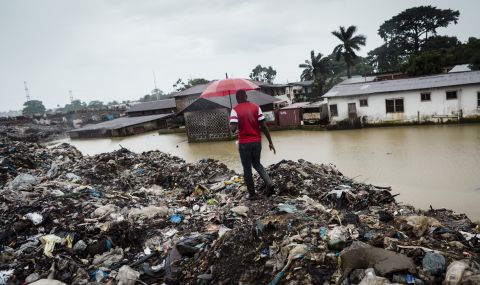
Local resident Alymemeh lives at the edge of this rubbish dump, the largest in Freetown, Sierra Leone .
As well as the daily grind for survival, people living on dumps often face discrimination. When you live and work on a rubbish dump everything about you is permeated by the overpowering smell. It identifies you before you even open your mouth as someone who lives outside of ‘normal’ society.
It is very dirty and there is a bad smell. I know there are very bad diseases that I can catch here. I am afraid of being cut by broken bottles, nails or syringes."
Dumpsite life also means women and girls are vulnerable to violence and sexual abuse, even rape – but because people are so poor and on the fringes of society there is nowhere for them to go for healthcare or support.
Children belong in school, not on rubbish dumps
This isn’t ‘just’ happening in Sierra Leone and Kenya. All over the world – China, Brazil, India – you’ll find people picking rubbish, in horrible conditions.
ActionAid is helping girls and women waste pickers to stand up to sexual exploitation and discrimination. And we’re working with children like Margaret to get them off the dump and into school.
It takes time and money. And that’s where child sponsorship comes in.
How you can help
Child sponsorship is one of the best ways to help children escape poverty, to give them the chance of an education, and to give their whole community hope for the future.
Children belong in school, not on rubbish dumps.
Please sponsor a child with ActionAid for just 65p a day, and you'll be starting a new friendship with a boy or girl in one of the world's poorest countries.
You'll be helping them to go to school, access clean water, nutritious food and healthcare, and to have the bright future they deserve.
